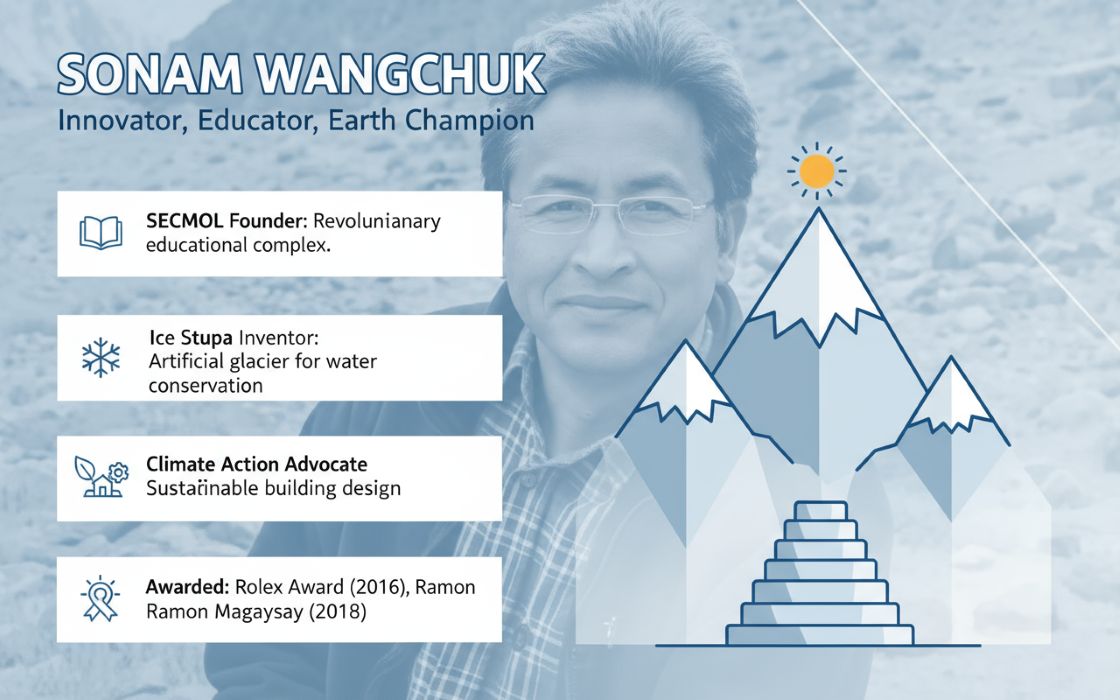In an initiative titled "UFlex Sustainability Awareness," Mr. Jeevaraj Pillai, Director-Sustainability, President- Flexible Packaging and New Product Development at UFlex Limited, details a program focused on educating young students about environmental responsibility. The program targets not only students but also their families and communities, aiming to instil habits that promote a circular economy.
The curriculum centres around the "3Rs" of waste management: Reduce, Reuse, Recycle. With a specific focus on plastic waste segregation at its source, the program utilizes interactive workshops, multimedia presentations, and storytelling to capture student attention. The workshops emphasize the environmental impact of plastic waste and proper disposal methods while fostering a deeper understanding of the complexities of waste management and recycling.
Scroll down to read the full interview:
Q. The program focuses on educating young students. Can you elaborate on how UFlex plans to measure the long-term impact of this initiative on students' environmental behaviour beyond primary school? Will there be efforts to track these students' choices and habits as they mature?
A. The UFlex “sustainability awareness” CSR program promotesenvironmentally conscious practices among primary school students, their families, and communities through the 3Rs principles: Recycle, Reduce, and Reuse. The CSR program curricula include an emphasis on plastic waste segregation at source. Segregation at source facilitates effective waste management practices leading to optimal recycling and circularity, thereby minimizing the waste that lands up in landfills.
To measure the short-term and long-term impact of this initiative, comprehensive reports are generated after each session, detailing the responses from participating students and highlighting the impact of the awareness program. Many students have already expressed a commitment to adopting sustainable practices in their daily lives, indicating an early positive influence.
Going forward, in year two of the program, the same set of students and schools will be engaged to track their sustainability choices and habits. This will include periodic follow-up surveys or assessments to gauge the extent to which students and their families have incorporated sustainable practices into their lives beyond primary school. Additionally, feedback from school administrators and teachers is collected to continually improve the effectiveness of the program.
Q. While 4,000 students is a commendable number, how can the program be scaled effectively to reach a wider population of children across India? Can the partnership with Say Earth be replicated in other regions, or are there plans to explore additional collaborations?
A. In the second year of this CSR program, UFlex is committed to engaging more than 50,000 students from schools in Noida and the National Capital Region in India. The program design includes expanding our reach to encompass more than 25 schools and organizing more than 100 experiential workshops. The program objective goes beyond reaching a larger number of children this year as we aim to extend the influence of our program to their families and friends, potentially creating an impact with approximately 150,000 individuals. In addition, the program will convert eight school campuses in Noida to “Zero Waste” facilities, reiterating our commitment to environmental sustainability.
Q. The press release mentions "a series of 45 hands-on workshops." Can you delve deeper into the curriculum of these workshops? What specific knowledge about waste management and recycling is being imparted to students, and how does the program address the complexities of different types of plastic waste?
A. The workshops are designed with afocus on promoting sustainability practices in the daily lives of primary school students and their families. The workshop curricula include an overview of material sciences and their use and benefits in daily lives, various recycling streams available for different materials, and the benefit of “source segregation”. The workshop is designed on the 3Rs principles: Recycle, Reduce, and Reuse, with emphasis on waste segregation at source.
The workshops featured interactive presentations utilizing multimedia tools, storytelling techniques, and real-life anecdotes to capture the attention of students, followed by a quiz to gauge their understanding of the subject. The content covered a range of topics, including the environmental impact of plastic waste, proper disposal methods, the concept of the 3Rs, and the importance of sustainable living.
Visuals, statistics, and real-life examples are incorporated into the presentations to make the content relatable and memorable for students. Students are encouraged to ask questions, participate in discussions, and reflect on the information presented, fostering a deeper understanding of the complexities of waste management and recycling.
Q. The program acknowledges the influence children have on their families. Are there strategies to extend education beyond students and directly engage parents and other family members in sustainability practices?
A. Indeed, children wield a significant influence in shaping sustainable communities. It is for this precise reason that our program is dedicated to educating children from a young age, instilling in them the proper sustainability habits, and the “right behaviors and sensitivity” toward the environment. By leveraging this influence, we aim to indirectly engage parents and other family members in sustainable practices, thereby magnifying our impact.
In year two, we will engage more than 50,000 students through 100+ workshops. Through the students and the course curricula, there would be an element of taking those practices and key points back to their siblings, and other family members, potentially impacting close to 150,000 individuals.
Q. The press release emphasizes "promoting waste management through the 3Rs." How does UFlex define success beyond the number of workshops conducted? Are there specific metrics used to track waste reduction or increased recycling rates in the targeted communities?
A. The effectiveness of our CSR program is gauged by the progress made in promoting waste management principles embodied by the three Rs: Recycle, Reduce, and Reuse.
One of the metrics in year one was to work with the schoolteachers to check with the participating students on any tangible changes that had been made at their homes related to source segregation. School students were encouraged to talk with their parents about introducing different colored dustbins at their homes to encourage waste segregation.
In year two, a pivotal objective of the program would be the transformation of eight schools in Noida into “Zero Waste Campuses”. This program will involve several measures such as optimizing waste segregation with the installation of different bins, meticulously measuring and documenting daily waste outputs across various categories and creating dedicated areas within the school premises for waste collection and making composting pits for waste processing. To track waste reduction and increased recycling rates, we will use specific metrics:
1. Measure the reduction in the quantity of waste generated daily, weekly, and monthly, compared to the baseline data collected during the initial survey.
2. Track changes in the composition of waste, focusing on the proportion of organic waste diverted for composting and the amount of recyclable materials recovered.
3. Calculate the percentage reduction in waste sent to landfills or incineration facilities, demonstrating progress toward zero waste goals.
By employing these metrics, we will ensure that our efforts are not only impactful but also measurable, allowing us to track progress and make informed decisions for continuous improvement in our waste management initiatives.
Q. While UFlex mentions its Noida recycling facility visit, is there a way for the broader community to learn more about the organization’s recycling practices? How does the company measure the effectiveness and sustainability of its recycling processes?
A. Our Noida recycling plant recycles more than 10,000 tonnes of PET bottles and MLP packaging waste annually, which is app. 10% of Noida's MLP waste. Replicating its efforts in India, UFlex has established recycling plants in Poland, Egypt, and Mexico to process post-consumer multi-layer mixed plastic waste into granules. UFlex recycles close to 30,000 MT of plastic waste in Poland, Mexico, and India and the goal is to reach 1,00,000 MT of recycling by building additional global recycling capacities.
In addition, our commitment to responsible water usage is exemplified through water-efficient processes such as our Zero Liquid Discharge (ZLD) systems. In our chemicals division alone, we recycle more than 25% of our total water consumption, which is approximately 28,000 kilolitres on-site, demonstrating our dedication to sustainability.
We remain committed to transparency and continuous improvement in our recycling practices, striving to set an example of environmental stewardship for our community and beyond.
Q. Could this initiative benefit from collaboration with other packaging companies? Are there opportunities for industry-wide efforts to promote responsible waste management and develop solutions for difficult-to-recycle materials?
A. UFlex has been at the forefront of pioneering sustainable solutions, particularly in the recycling of multi-layered aseptic packaging previously considered non-recyclable. Our innovative "Enzymatic Delamination Technology" breaks down the bonding between different layers of packaging materials, allowing for their separation and reuse in the production of new products.
By working with industry bodies and global organizations like the Alliance to End Plastic Waste (AEPW), our Chairman and Managing Director, Mr. Ashok Chaturvedi, and our management team regularly make presentations on both domestic and global platforms to showcase our recycling technologies for MLP and aseptic waste and by inviting brand owners, civic bodies, NGOs, and recyclers to visit our facilities and learn more about these technologies.
We believe that by working together with industry partners, regulators, and other stakeholders, we can amplify our impact and accelerate the development of sustainable solutions for difficult-to-recycle materials, ultimately contributing to a more sustainable future for all.Top of Form
Q. Education is crucial, but does the establishment plan to go beyond workshops and explore initiatives that directly support households and communities in reducing or managing plastic waste? Could these initiatives involve partnerships with local waste management agencies or infrastructure development?
A. UFlex recognizes the importance of going beyond workshops to directly support households and communities in reducing or managing plastic waste. We are actively exploring initiatives to address this issue in collaboration with local waste management agencies and through infrastructure development.
We are always open to partnering with NGOs and local waste management agencies to establish recycling programs to provide households with the necessary resources and information to sort and recycle their waste, thereby reducing plastic in landfills and the environment.
Additionally, we are exploring investments in additional recycling facilities, collection centres, and innovative technologies for recycling multi-layered mixed plastic waste. By improving local infrastructure, UFlex aims to facilitate the transition toward a circular economy where waste is minimized, and resources are reused or recycled.Partnerships with local organizations, businesses, and government bodies are crucial for the success of these initiatives. By leveraging collective resources and expertise, we can implement sustainable solutions that benefit households, communities, and the environment.
Q. While the program focuses on waste management, does the organization consider initiatives that address consumer behaviour on the front end? Could this involve promoting packaging design or materials that minimize waste in the first place, or educating consumers about responsible product choices?
A. UFlex acknowledges the significance of addressing consumer behaviour in tandem with waste management initiatives. In line with this, we prioritize promoting eco-friendly packaging solutions that utilize a higher percentage of recycled materials, thereby prioritizing sustainability and minimizing environmental impact. Through initiatives like these, we aim to encourage responsible product choices among consumers and contribute to a more sustainable future.Top of Form
As an industry leader in building sustainable flexible packaging solutions, UFlex runs a global sustainability initiative called ‘Project Plastic Fix’. This initiative is aligned with the company’s sustainability approach of 4Rs to tackle the challenge of reducing stock and flow of plastic waste in the environment.
REDUCE |ASCLEPIUSTM: Up to 100% post-consumer recycled content(PCR) BOPET barrier film to reduce the use of virgin plastic at source and replace it with recycled content.
RECYCLE|MLP WASTE INTO GRANULES: Recycling multi-layered mixed plastics (MLP) waste into granules.
REUSE|PYROLYSIS PLANT: Converting plastic waste into fuel.
RETURN: 100% super earth-friendly biodegradable packaging that breaks down under ambient conditions.
Product innovation at UFlex to meet sustainability objectives:
Globally, companies are prioritizing sustainable solutions in production and packaging and investing heavily to minimize their environmental footprint.
1. Technological advancements enable eco-friendly manufacturing, leveraging energy-efficient machinery and renewable energy sources. Supply chain optimization and lean manufacturing principles further reduce waste and enhance efficiency.
2. Source reduction by using more and more recycled content as a substitution to virgin. UFlex is prioritizing sustainable packaging solutions to mitigate the environmental impact of our products. For example, we produce AsclepiusTM- 100% PCR PET films made by upcycling post-consumer PET plastic bottles that offer the same attributes as its twin substrate made from virgin PET. The incorporation of recycled content contributes to the circular economy by reducing reliance on virgin materials and promoting resource conservation.
3. Source substitution by reducing the use of difficult-to-recycle materials. UFlex has developed a mono-polymer-based structure that enables material simplification making the film fully recyclable.
UFlex’s chemicals (inks and adhesives) business has developed a wide range of green inks and adhesives and one of the recent innovationsFLEXBOND SF WET LM 35 is designed largely for the wet lamination of clear biaxially oriented polypropylene (BOPP) and polyvinyl chloride (PVC) films to paper or duplex boards. Applicable with manual or semi-automatic machines, the water-based adhesive makes the product more sustainable.
UFlex’s engineering has developed ReLAM 250, a high-end multi-layer recycling machine that meets European standards and turns mixed plastic waste into granulated products without the need for separation of layers.
Flex Films has developed various eco-friendly films:
- PCR PET Films: Issued by SCS Global Services with Kingfisher certification, the range of up to 100% PCR PET Films under the brand name AsclepiusTM is made by upcycling post-consumer PET plastic bottles and offers the same attributes as its twin substrate made out of virgin PET.
- PCR PE Films: Range of PCR Poly-Ethylene films upcycled from post-consumer multi-layer mixed plastic waste.
- Recyclable Mono-material Films: Manufacturing mono-polymer based structure that enables material simplification using an innovative manufacturing process thus making the film fully recyclable.
- Biodegradable Films: These super-earth-friendly films using FlexzymeTM technology are enzyme-based and embody all the qualities of a good packaging film. Sturdy and flexible, it has the superpower of being biodegradable in a fixed period. When the packaging made from this film comes in contact with soil, it begins to degrade into water, carbon, and biomass, leaving no polluting impact.
- B-TEM BOPP film: It is a high-barrier film that provides an excellent barrier against oxygen. The mono-material film is developed with coating on one side and corona treatment on the other side and stands high on the sustainability quotient due to its easy recyclability.
Q. Does UFlex advocate for policy changes that would promote a more circular economy for plastics in India? Could this involve lobbying for producer responsibility initiatives or extended producer responsibility (EPR) schemes that incentivize responsible plastic production and recycling?
A. UFlex is at the forefront of advocating for policy changes that promote a more circular economy for plastics in India. Sustainability is deeply ingrained in our industry's DNA, and we are committed to driving meaningful change. We actively support initiatives such as extended producer responsibility (EPR) schemes, which incentivize responsible plastic production and recycling.
In India, we are currently implementing EPR based on the cardinal principle that every polluter must collect. This comprehensive approach covers producers, importers, brand owners of plastic packaging material, and plastic waste processors, ensuring a clear chain of responsibility. The mechanism is centralized through a portal, similar to GST, which balances inputs and outputs to prevent tampering or deception.
Our well-designed EPR obligates all stakeholders to reuse, recycle, and reduce the use of virgin material, while also ensuring the proper management of end-of-life materials. Moreover, it serves as an economic model, promoting the development of recycling infrastructure and rewarding recyclers with tradable certificates, thus accelerating policy implementation.
At UFlex, we believe that such policies and collaborations are pivotal in driving sustainable solutions and mitigating the environmental impact of plastic waste, both in India and worldwide.




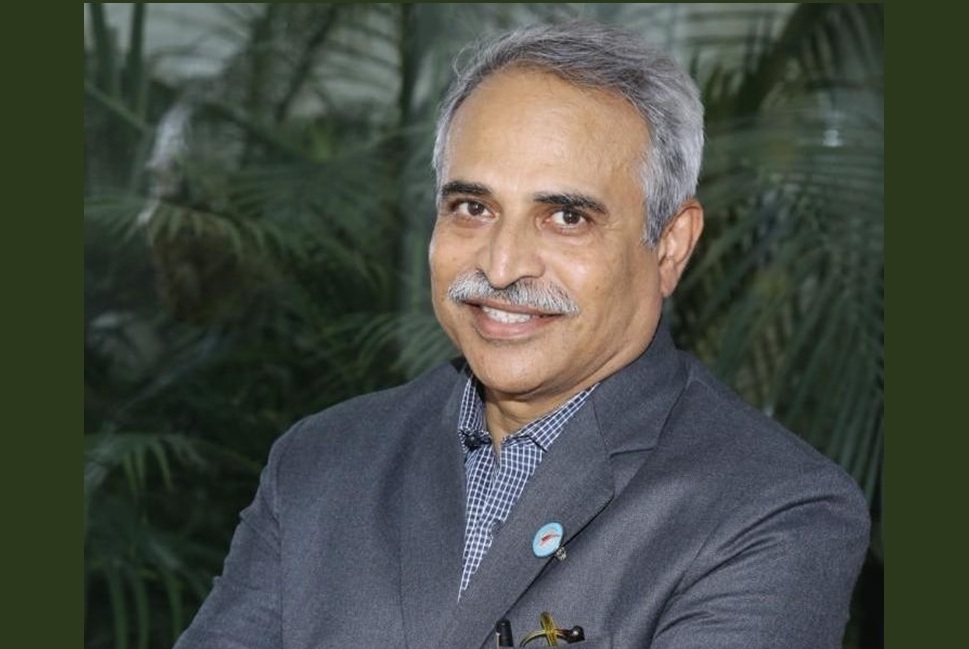






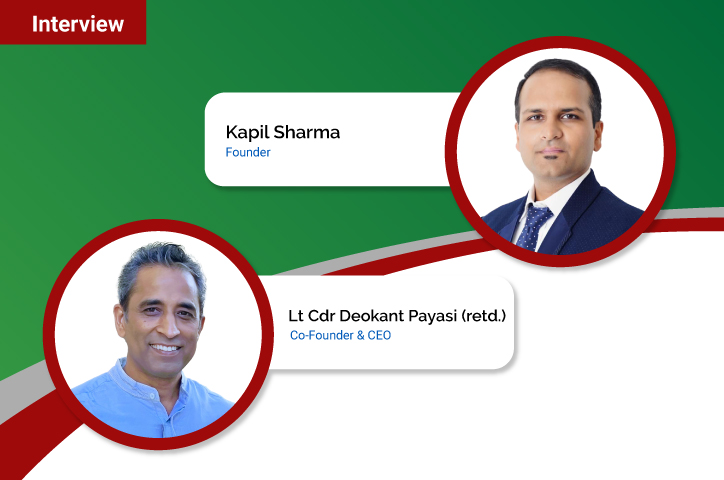
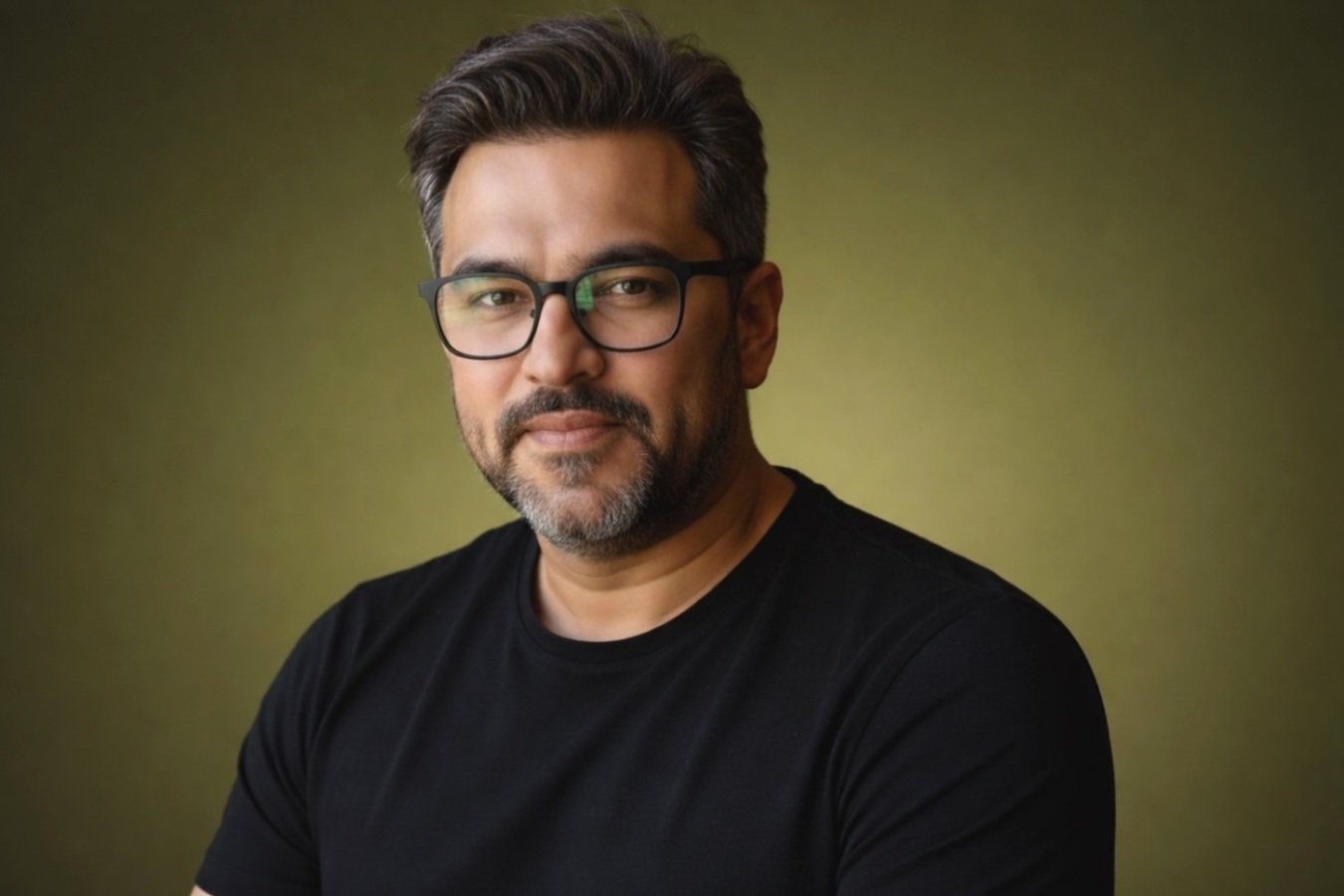
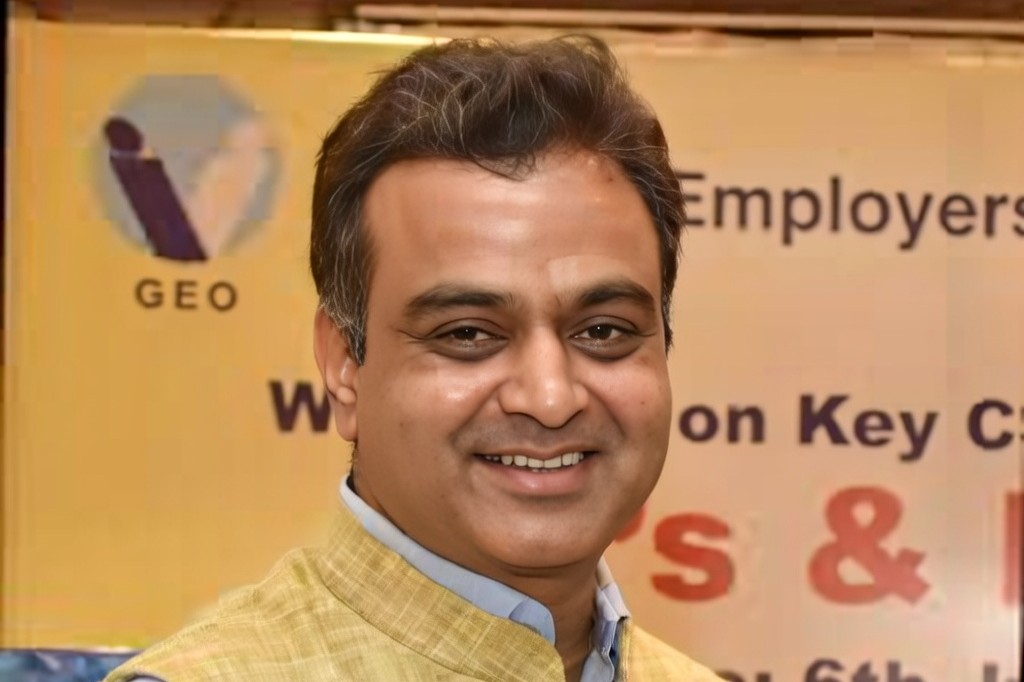

.jpg)

